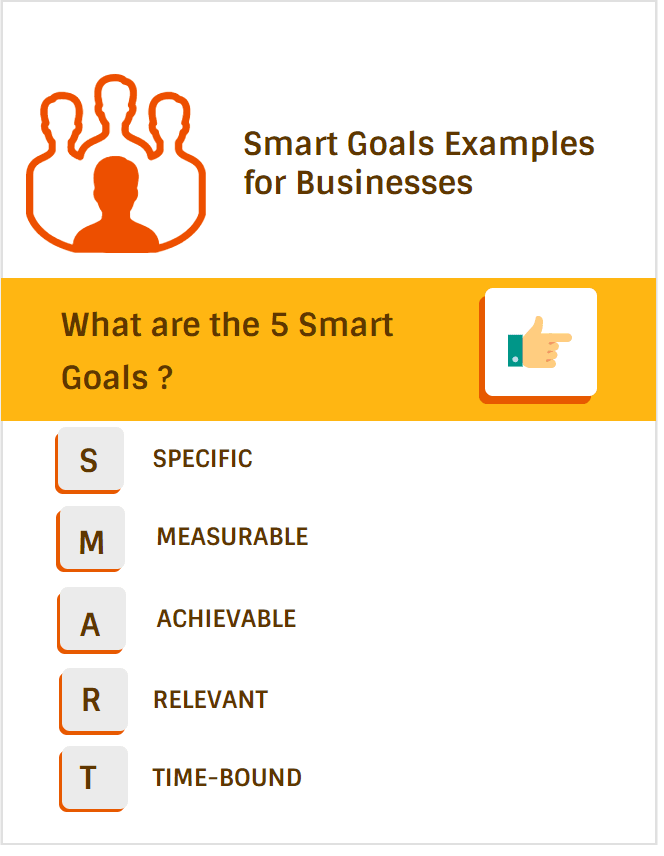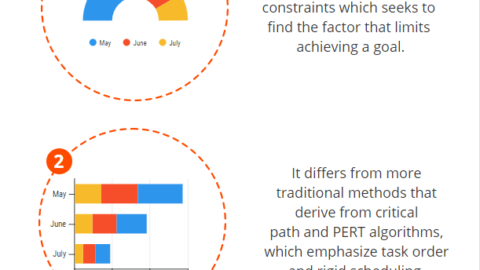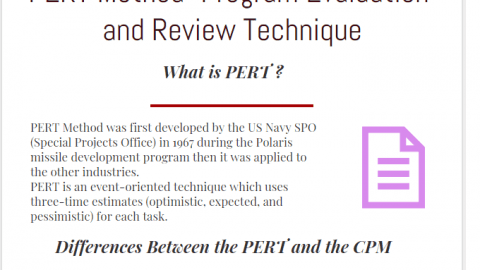Smart Goals Examples for Business and Project Management
SMART is an acronym that stands for Specific, Measurable, Attainable, Relevant, and Time-Bound to refer to a process of setting your business or personal goals. Using the SMART approach helps individuals and/or organizations to set better targets that are specific and measurable. The term SMART goals was first mentioned by Peter Drucker in his book “The Practice of Management” in 1954. However, this concept gained popularity with Professor Robert S. Rubin’s studies in which he discussed SMART as an effective tool to be used to increase the chances of succeeding in a goal. In this article, we share several examples of SMART goals and objectives for business and project management. Keep on reading to explore how the sample SMART goals will help you to write your own project goals.
Table of Contents
What are the 5 Smart Goals?
No matter if your goals are related to your business or your personal life, specifying goals will help you achieve them and become more successful. Not having a goal means without having a map or a plan. Using the SMART method while specifying goals ensures you don’t miss any critical significant details. Because each letter in a SMART goal refers to a special aspect.
Note that many people think goals and objectives are the same. However, they are different but related concepts. The goal is a high-level target where the objective is a detailed one that directs you to the end result.
SMART is the acronym of the following and SMART goal incorporates all of them. Below are the definition of smart goals with examples.
Specific
The S refers to Specific. While setting the goal, you need to be specific and write what you exactly want to do. If you could use action verbs you will express your goals better. For example, you can write, I’m going to … instead of writing, I want… This will help you to focus on your purpose.
Measurable
The M refers to Measurable (Quantifiable). The goal should be quantifiable so that you can understand when the project goal has been reached. If you could use numbers and quantities, you will clarify better. For example, signing a contract with ten new customers is a measurable goal.
Achievable
The A refers to Achievable (Attainable). It reminds you to check to make sure that the goal is attainable. Because team members are motivated by goals that are attainable. They should understand the steps that need to be followed to complete the objective. For example, signing a contract with ten new customers is a reachable goal.
Relevant
The R refers to Relevant. You should o focus on the goals that you need. The goals should be relevant and realistic. Analyze the budget ask yourself if your team has the knowledge to achieve this goal.
Time-Bound
The T refers to Time-Bound (or Timely). You need to create a schedule and define the completion date for the goal. Detail the substages. For example, signing a contract with ten new customers in twelve months is a timely goal.
SMART Goals in Project Management
Discussions about project objectives often start like that: the client requests some additional benefits (more revenue, better brand recognition, etc.) and the project team discusses how to put these goals together to form the project objectives. So, how to write smart goals and objectives to become more successful while managing projects?
In order to be more productive, every project goal must meet the SMART criteria. While setting project goals, consider the following elements;
- Specific: Define the goal clearly and make sure it addresses a specific need or improvement.
- Measurable: Setting a quantifiable goal is especially important for progress measurement and evaluating performance.
- Attainable: Check the resource limits and availability, while setting the goal. You need to consider the bottlenecks and constraints.
- Relevant: Consider the project work and organizational goals while setting the goal. It must be aligned with your overall project efford.
- Time-bound: Time slips away so fast. Therefore, you should make use of the time well by creating and tracking project schedules. Without a specific start and end date, you can’t catch up the major project milestones and complete the project on time.
Smart Goals Examples for Project Management: Complete the Project in 10 Months
According to the contract, project duration is 12 months. In that example, project manager Adam sets the following goals with his team to complete the project in 10 months.
- Specific: Complete the project in 10 months without overspending.
- Measurable: Planned progress will not be less then %10/month
- Attainable: We will bring 100 additional skilled worker and 10 machines. (Our plan is to complete the project 2 months earlier. Additional manpower and machinery cost will be less than the indirect costs of 2 months)
- Relevant: We will demonstrate our performance to the client and sign the next contract.
- Time-Based: All the project work will be completed in 10 months including testing and commissionning.
More Smart Goals Examples for Business Projects and Personal Life
Below are a few smart goals examples to help you to create your owns for your business or your personal life.
Smart Goals Examples for the Project Acquisition Process of a Consultant Firm
- Specific: Sign ten projects per year
- Measurable: In order to get ten contracts, we will have thirty proposals.
- Attainable: In the last decade we had eight projects per year, and we have been growing by 20%, so a growth rate of 25% is achievable.
- Relevant: We will participate in expo to improve our firms’ recognition.
- Time-bound: We will perform work performance reports to track our performance and contingency planning.
Smart Goals Examples for Launching a Website
- Specific: Launch a website for $10,000 dollars.
- Measurable: The website will include ten pages, fifty blog posts, and a forum.
- Attainable: We will assign a Senior designer for 200 hours and a developer for 250 hours.
- Relevant: The senior developer will work 20 hours per week and the senior designer will work 25 hours per week.
- Time-bound: The website will be completed ten months.
A Smart Goal Example for Personal Life
- Specific: I will earn more salary
- Measurable: I will document my performance and work with my manager closely to ensure he will see my progress.
- Attainable: I will work hard and provide more value to the company.
- Relevant: I will participate in project groups to show my performance in the company. I will also participate in personal development courses to improve my skills.
- Time-bound: I will accomplish these goals within one year.
Smart Goals Examples for Improving Customer Satisfaction
- Specific: We will respond to all customer questions within six hours.
- Measurable: We will answer the calls within three rings of the line and close the support tickets within four hours of being opened.
- Attainable: We will employ ten more service team members to meet the performance requirements.
- Relevant: Improving response rates is essential for our business; therefore, we will demonstrate our performance to the customers.
- Time-bound: We will accomplish these goals by the end of this year. We will analyze the performance reports every month and take actions if the targets are not received.
Summary
Writing goals clearly will help you to become more successful in your business and personal life. Team members, clients, stakeholders can easily understand your opinions and targets. The team members can break down the goals into tasks and logical steps. Then they put these goals together to form the project objectives. In this article, we shared smart goals examples for business, project management and personal life. We hope these examples will help you to create your own goals and coach your staff on how to write SMART goals objectives.
Making your goals SMART demonstrates that you know what you’re going to do and how you are going to meet the goals. Note that setting SMART goals and objectives is key to successful performance management in a project. You can track your team members’ or employees’ performance by analyzing how they align with the goals.
How to write SMART Goals? Share your experiences with us by using the comments box below.
Further Reading
Guideline for traveling from vision
See Also

Joe Hatten, PMP, CST, MBA works as an Agile Trainer and Coacht for AgileZilla where he provides training and coaching for organizations who are transitioning to Agile.










